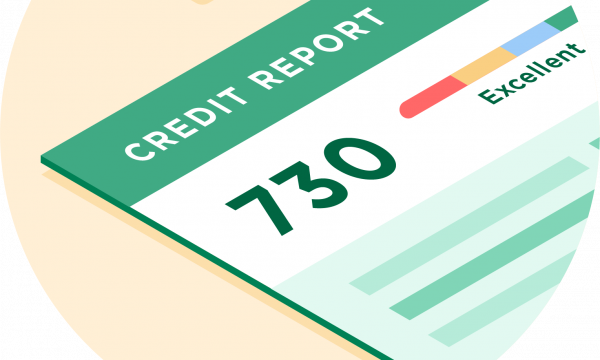What is a Hard Inquiry and How Long Does It Affect Your Credit?
A hard inquiry stays on your credit report for two years but typically won’t affect your score for more than a year.

Many, or all, of the products featured on this page are from our advertising partners who compensate us when you take certain actions on our website or click to take an action on their website. However, this does not influence our evaluations. Our opinions are our own. Here is a list of our partners and here's how we make money.
Hard inquiries on your credit — the kind that happen when you apply for a loan or credit card — can stay on your credit report for about 2 years. However, a hard inquiry typically won’t affect your credit score after 12 months.
What is a hard inquiry?
A hard inquiry, sometimes called a hard pull, is when a potential lender requests to check your credit as part of the application or approval process.
Hard inquiries typically happen when you’re applying for a mortgage, credit card, auto loans or student loans. A single hard inquiry can drop your score by a few points and stay on your credit reports for two years, although the impact lessens over time.
On the other hand, a soft inquiry, or soft pull, has no impact on your score. Soft inquiries happen when you check your own credit or when a lender peeks at your credit to see if you’d qualify for a new credit card. An employer credit check also falls into this category.
» Ready to get started? Get your free credit score with NerdWallet
Stress less. Track more.
See the full picture: savings, debt, investments and more. Smarter money moves start in our app.
How much does a hard inquiry affect your credit score?
Applying for credit can knock a few points off your credit scores. For people with extensive credit histories, a single hard inquiry has no significant effect.
However, if you're trying to build credit, every point counts. Spacing out new applications every six months should help steady your score.
Any credit score damage done by hard inquiries can be fixed with time. Before applying for new credit, it’s a good idea to check to see if you're likely to qualify, since a hard inquiry shows up on your credit reports whether you're approved or not.
If you're applying for a mortgage, wait until after the loan closes before applying for new credit.
FICO vs. VantageScore calculations
If your score dropped because you applied for several credit accounts in a short time, don't panic. Credit applications aren't a big part of how credit scores are calculated.
For VantageScore, recent credit behavior and inquiries are labeled “less influential,” and new credit applications make up only 10% of FICO scores. Still, if you don't have much credit history or only a few accounts, you might see a bigger dip.
Exceptions if you're rate shopping
When you’re shopping for a mortgage, student loan, or car loan, several inquiries in a short period usually count as just one. The exact time window depends on the scoring model. Newer FICO scores give you about 45 days, while VantageScore only allows about 14 days. Since you can’t control which score a lender uses, it’s best to do your rate shopping within a short time frame.
Space out credit applications to minimize impact
Too many hard inquiries can hurt your credit, especially if you are just starting out. It’s an easy mistake to make. For example: You rent an apartment, and the leasing agent checks your credit as part of the application process. Next, you finance furniture to fill your new space. Then you decide to apply for a credit card with travel rewards. That's four credit inquiries within a short period, which could lower your score.
FICO says people with six or more recent inquiries are up to eight times as likely to file for bankruptcy as those with none — and credit scoring formulas take that risk into account.
How to remove a hard inquiry
Hard inquiries can't be removed from your credit report unless they are inaccurate. If that's the case, you can dispute a hard inquiry as you would any other error on your credit reports.
When you review your credit reports, you should be looking for hard inquiries that aren’t related to your recent financial behavior. These could be signs of identity theft and should be reported promptly.
If you can’t trace the reason for a hard inquiry or you believe it was done without your consent, you can dispute it online. If the credit bureau can’t confirm it as a legitimate inquiry, it’s required to remove it. Contact the three major credit bureaus individually.
If you think someone may be using your information, you can place a free fraud alert on your credit reports. A fraud alert tells lenders to take extra steps to confirm your identity when an application is made in your name. Unlike a dispute or credit freeze, you only need to contact one credit bureau — it will notify the other two for you.
For the best protection, NerdWallet recommends freezing your credit with all three bureaus to stop anyone from opening new credit in your name.
» Learn more: How to freeze your credit
How to boost your credit after a hard inquiry
There are two important things you can do to offset the negative impact of a hard inquiry on your credit score during the following 12 months:
- Pay your balances on time, every time. Try your best to pay the bill in full, too, to prevent debt and the accrual of costly interest.
- Keep credit card balances no higher than 30% of your credit limit. Set alerts on your cards so you know when you’re approaching that threshold. Utilizing less of the credit available to you will keep your budget in check and build your score.
While there are other factors that impact your credit score, those two habits account for more than half of your total score.
Stress less. Track more.
See the full picture: savings, debt, investments and more. Smarter money moves start in our app.
Article sources
NerdWallet writers are subject matter authorities who use primary,
trustworthy sources to inform their work, including peer-reviewed
studies, government websites, academic research and interviews with
industry experts. All content is fact-checked for accuracy, timeliness
and relevance. You can learn more about NerdWallet's high
standards for journalism by reading our
editorial guidelines.
Related articles









